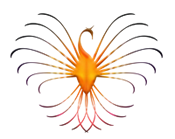
Search
U.S. Report Calls for Tighter
Controls
on Complementary Medicine
BMJ 2002; 324:870 (13 April)
Charles Marwick
Washington, DC
Unconventional Complementary medical therapies, medical treatments such as acupuncture, massage, and herbal, and nutritional treatments and similar approaches to health care must be evaluated with the same standards of quality, rigour, and ethics as conventional medical treatments, states the US Commission on Complementary and Alternative Medicine.
"First class scientific research is crucial to helping (people) and those who care for them, make the wisest health care decisions," said Dr James S. Gordon, the commission's chairman.
The commission, established two years ago by former President Bill Clinton, was charged with making legislative and administrative recommendations to help develop public policies that would maximise the benefits, if any, of so-called complementary and alternative medicinal practices. It issued its report at the end of March.
The report notes an emerging dialogue between complementary, alternative medicine and conventional medicine and recommends that efforts should be made to strengthen it. It calls for integrating proven safe and effective complementary and alternative medicine practices and products that have been proved to be safe and effective into conventional health care and recommends increased funding for research clinical, basic and health services research using into these medicine treatments.
The report recommends the creation of a central, co-ordinating office to oversee all activities relating to complementary and alternative medicine activities in the Department of Health and Human Services. Declining to make specific comments, a spokesman for the Department said the panel's report "would be considered."
There is some backing in Congress for complementary and alternative medicine in Congress, which mandated a centre at the National Institutes of Health for supporting studies into such treatments into its use at the National Institutes of Health. Senator Tom Harkin, a Democrat from Iowa, is one supporter. Commenting on the commission s report, he said that if its recommendations were implemented they would help people get the best of both traditional and complementary medical practices.
Other recommendations by the commission are directed at the education of practitioners, the dissemination of information about on complementary and alternative medicine, and reimbursement for proven treatments. A particular concern was the need to inform the public of adverse events associated with complementary and alternative therapy products. It cites dietary supplements as one example. In 2000, says the report, $17 billion (£12bn; ¬19bn) was spent by more than 158 million Americans on these agents, yet they are not given the same rigorous testing and oversight control as prescription drugs.
The report was hardly issued before critics attacked it. For example, the National Council Against Health Fraud said it was pointless to spend more money on areas that were unlikely to yield any benefit and that the report failed to distinguish between approaches "for which there is some scientific evidence and those that stretch the realm of logic or are demonstrably unsafe."
Responding, Dr Gordon said that the commission's
job was not to evaluate specific therapies treatments. He pointed
out that increasing numbers of Americans have begun to look to
complementary and alternative medicine for their health care. "Our
report," he said, "highlights the opportunities for evaluating
the ways that are safe and effective."
See Ingrid Naiman's comments on
the above story ![]()

Poulsbo, Washington
Copyright by Ingrid Naiman 2002, 2006, 2009, 2014